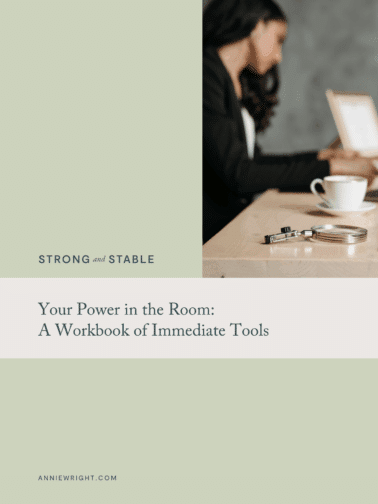In the course of our personal growth journeys, as we begin to learn more about ourselves, our patterns, and the way our lives were impacted by our early childhood experiences, we may, at some point, confront the question:
“Am I codependent?”
If you’ve ever asked this question, if you’re curious or concerned that this may be the case for you, today’s essay is written just for you.
In it, I explore the questions of what is codependency, how do I know if I’m codependent, why does someone become codependent, and how do I stop being codependent.
Please, keep reading if this question has ever lived in your own mind and heart.
What does it mean to be codependent?
“There are two questions a man must ask himself: The first is ‘Where am I going?’ and the second is ‘Who will go with me?’ If you ever get these questions in the wrong order you are in trouble.” ― Sam Keen, Fire in the Belly: On Being a Man
Codependency, like with so many other mental health terms, has filtered into our general consciousness and pop lexicon.
And, like with so many of these terms, it’s often misunderstood and misrepresented, conflated, or used as a weapon to insult others.
“You two are always joined at the hip! Oh my god, you’re like so codependent!”
“You call your mom every week? Aren’t you afraid that’s a little too codependent?”
“He’s totally happy to let her be in the limelight. It’s codependent behavior if you ask me.”
I’m sure you could write your own list of times you’ve heard this phrase used and weaponized.
Am I codependent?
According to Mental Health America,
“[Codependency] is an emotional and behavioral condition that affects an individual’s ability to have a healthy, mutually satisfying relationship. It is also known as “relationship addiction”. People with codependency often form or maintain relationships that are one-sided, emotionally destructive, and/or abusive.“
And still, Wikipedia defines codependency as:
“Codependency is a behavioral condition in a relationship where one person enables another person’s addiction, poor mental health, immaturity, irresponsibility, or under-achievement. Among the core characteristics of codependency is an excessive reliance on other people for approval and a sense of identity. Definitions of codependency vary. But it is generally defined as a subclinical, situational, and/or episodic behavioral condition. Similar to that of dependent personality disorder. The term is less individually diagnostic and more descriptive of a relationship dynamic.”
Codependency then, in essence, describes an impaired way of relating to others and relating to the self in healthy, constructive ways.
It’s a relational disorder that impairs the life of the person who displays these tendencies.
But how do you know if you’re codependent?
What are the signs and signals that you may have tendencies towards this relational disorder?
How do I know if I’m codependent?
“Ever since people first existed, they have been doing all the things we label “codependent.” They have worried themselves sick about other people. They have tried to help in ways that didn’t help. They have said yes when they meant no. They have tried to make other people see things their way. They have bent over backwards avoiding hurting people’s feelings and, in so doing, have hurt themselves. They have been afraid to trust their feelings. They have believed lies and then felt betrayed. They have wanted to get even and punish others. They have felt so angry they wanted to kill. They have struggled for their rights while other people said they didn’t have any. They have worn sackcloth because they didn’t believe they deserved silk.” ― Melody Beattie
What's Running Your Life?
The invisible patterns you can’t outwork…
Your LinkedIn profile tells one story. Your 3 AM thoughts tell another. If vacation makes you anxious, if praise feels hollow, if you’re planning your next move before finishing the current one—you’re not alone. And you’re *not* broken.
This quiz reveals the invisible patterns from childhood that keep you running. Why enough is never enough. Why success doesn’t equal satisfaction. Why rest feels like risk.
Five minutes to understand what’s really underneath that exhausting, constant drive.
There is no one singular checklist of qualities and characteristics of what makes someone codependent. Different sources have different thoughts about what may make someone codependent.
In my experience as a relational trauma expert, here are the qualities and characteristics that I believe comprise codependency:
Impaired esteem.
Low self-esteem, disliking yourself, hating yourself, feeling like your self-esteem and confidence hinges upon how you’re perceived and treated by others. You’re perceived well and treated well, your esteem soars. You’re treated or perceived poorly, your confidence plummets. You feel like a veritable Weeble Wobble when it comes to feeling good about yourself.
Impaired attachment.
The idea that you could feel healthy, secure attachment feels impossible to imagine. The idea that your partner might leave you terrifies you. You watch yourself act out if they display any signs of abandoning you (real or imagined). You feel like a strong, smart person at work, but like you’re at the mercy of your relationship’s security behind the closed doors of your house.
Poor boundaries.
Your boundaries – mental, emotional, logistical, physical – are too wide open and, sometimes or often, people take advantage. You don’t feel like you can say no, you have stories and beliefs about what you do or don’t get to ask for, and you can see yourself in this list.
Variable and externally-dependent moods.
Your emotions feel like a storm inside of you. Rarely do you have long stretches of time where you experience emotional equanimity. Instead, your moods sway and swing depending on the circumstances around you. For example, you were in a good, happy mood when you got home.
But then, an hour later when your partner gets off work, he’s in a crabby, cranky mood and you can feel your own plummet. You don’t seem to have control over how you feel and are heavily influenced by external variables to dictate your moods: your partner’s mood, your boss’s mood, how you and your best friend are doing, etc.
Poor communication skills.
You think that asserting your needs and wants is “selfish,” “aggressive,” or “self-centered.” You want to ask for your needs and preferences to be taken into consideration, but you have no idea how, mistaken beliefs about what healthy communication actually looks like, and you react poorly when others display assertive communication with you.
A lack of understanding of what makes a relationship healthy versus unhealthy.
You have no or little idea about what makes a relationship healthy, functional, and mature. Or, you have mistaken beliefs about this that keep you feeling trapped and beholden in relationships that feel like “a one-way street.”
A predisposition towards caretaking and people-pleasing.
Because of all the above, you find yourself playing the role of helper, caretaker, people pleaser, or even martyr in your relationships. You derive pleasure, meaning, and identity from being good and helpful and the person folks need. And you take this to an extreme where it impairs your own quality of life (though sometimes that’s hard for you to see).
Again, this is my interpretation of what some of the primary characteristics of codependency can look like. This list is not exhaustive.
But now, let’s ask the million-dollar question: why does someone become codependent?
Why does someone become codependent?
“Many of us live in denial of who we truly are because we fear losing someone or something – and there are times that if we don’t rock the boat, too often the one we lose is ourselves…It feels good to be accepted, loved, and approved of by others, but often the membership fee to belong to that club is far too high of a price to pay.” ― Dennis Merritt Jones
Codependency is, in my clinical opinion, a trauma disorder.
More specifically, a relational trauma disorder.
What do I mean by this?
Overwhelmingly, folks who present with codependent characteristics have a history of childhood trauma.
Specifically, complex relational trauma experiences that take place over time in the context of caretaking or authority relationships.
The experiences of trauma can be anything that undermines the integrity, well-being, and personhood of the individual who experiences it, and what makes it traumatic is that it subjectively overwhelms the person’s ability to stay present and to cope.
As I’ve written about before, the impacts of complex relational trauma can be vast and impactful on the individual who experiences it.
Now, this doesn’t necessarily mean that an individual who experiences complex relational trauma in childhood will develop codependency characteristics, but it does mean that when someone presents with codependency patterns, we can and should be curious about their childhood history of traumatic experiences and how this has shaped their responses to the world.
Those with relational trauma histories more often than not go on to have relational trauma disorders ranging from the inconvenient to the extreme.
Codependency, I believe, is one such extension of coming from a relational trauma background.
How do I stop being codependent?
“If you live your life to please everyone else, you will continue to feel frustrated and powerless. This is because what others want may not be good for you. You are not being mean when you say NO to unreasonable demands or when you express your ideas, feelings, and opinions, even if they differ from those of others.” ― Beverly Engel
So, if the million-dollar question is “why does someone become codependent?” then the two million dollar question is this:
“How do I stop being codependent?”
First of all, I want to share a memory with you from my four years of living and working at Esalen Institute.
In my own recovery from a relational trauma background, at one point in the journey, a mentor of mine there said to me:
“Annie, the goal is not to become fully independent of others. Nor is the goal to be dependent on others all the time. The goal is to be interdependent – able to easily rely on others and have them rely on you.”
I share this vignette with you because it illustrates something very important: the healing journey from codependency does not look like an end-goal destination of pure independence.
The destination is interdependence.
And as part of getting to that destination, recovering from codependency should and must bear the following goals and mile markers in mind:
- Esteeming yourself and learning how to feel a steady, grounded sense of self and confidence as you move through the world, largely regardless of external circumstances.
- Developing and healing your attachment style.
- Learning or re-learning what makes a healthy, functional relationship.
- Learning or re-learning what healthy and assertive communication looks like.
- Learning what a boundary even is, what yours are, and how to assert them.
- Re-parenting yourself, becoming your own “good-enough” inner mother and father.
- Cultivating healthier, more mutually beneficial, and supportive relationships.
- Coping with your own feelings – learning how to feel, regulate, and appropriately express them.
- And more.
Wrapping up.
Now, if you did see yourself in this essay, if you read the above goals in recovering from codependency and felt overwhelmed or discouraged, please don’t feel that feel.
It’s a very good (although sometimes hard) thing to see ourselves plainly.
But, when we do, we can get clearer and more strategic about getting ourselves the kind of support we need to address the reality of our situation.
“Healing begins with awareness, understanding, and action.” ― Diane Metcalf




